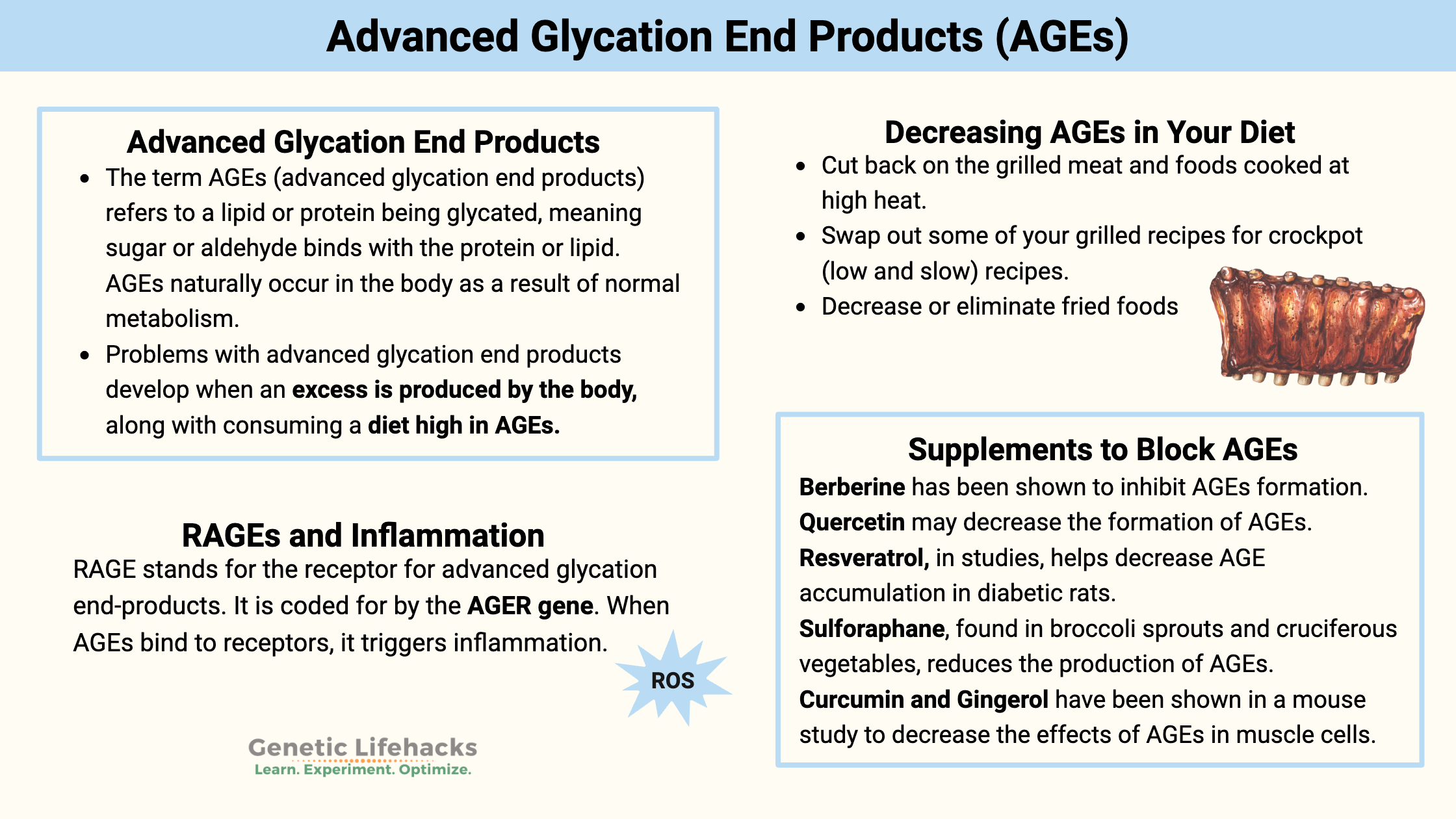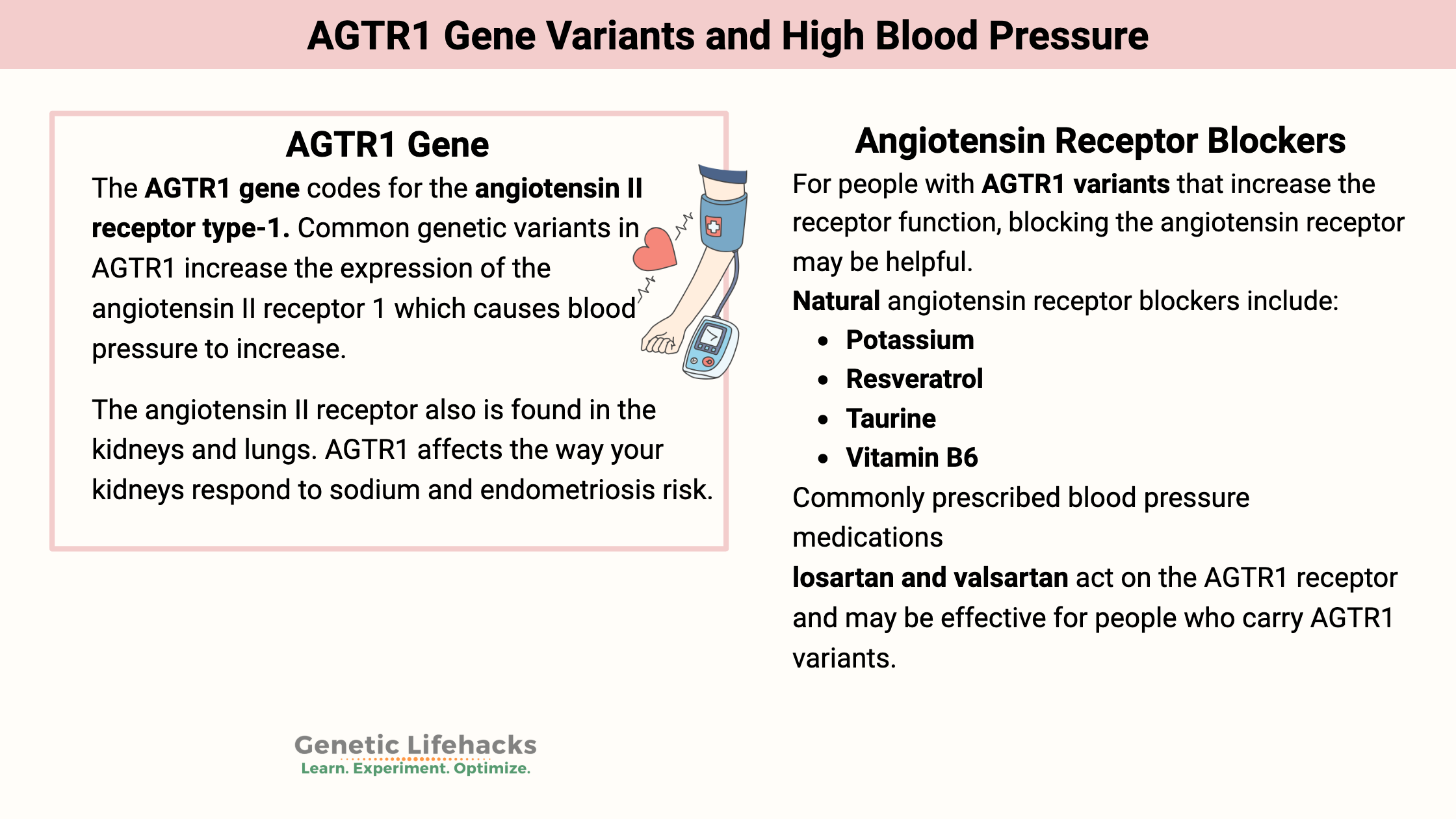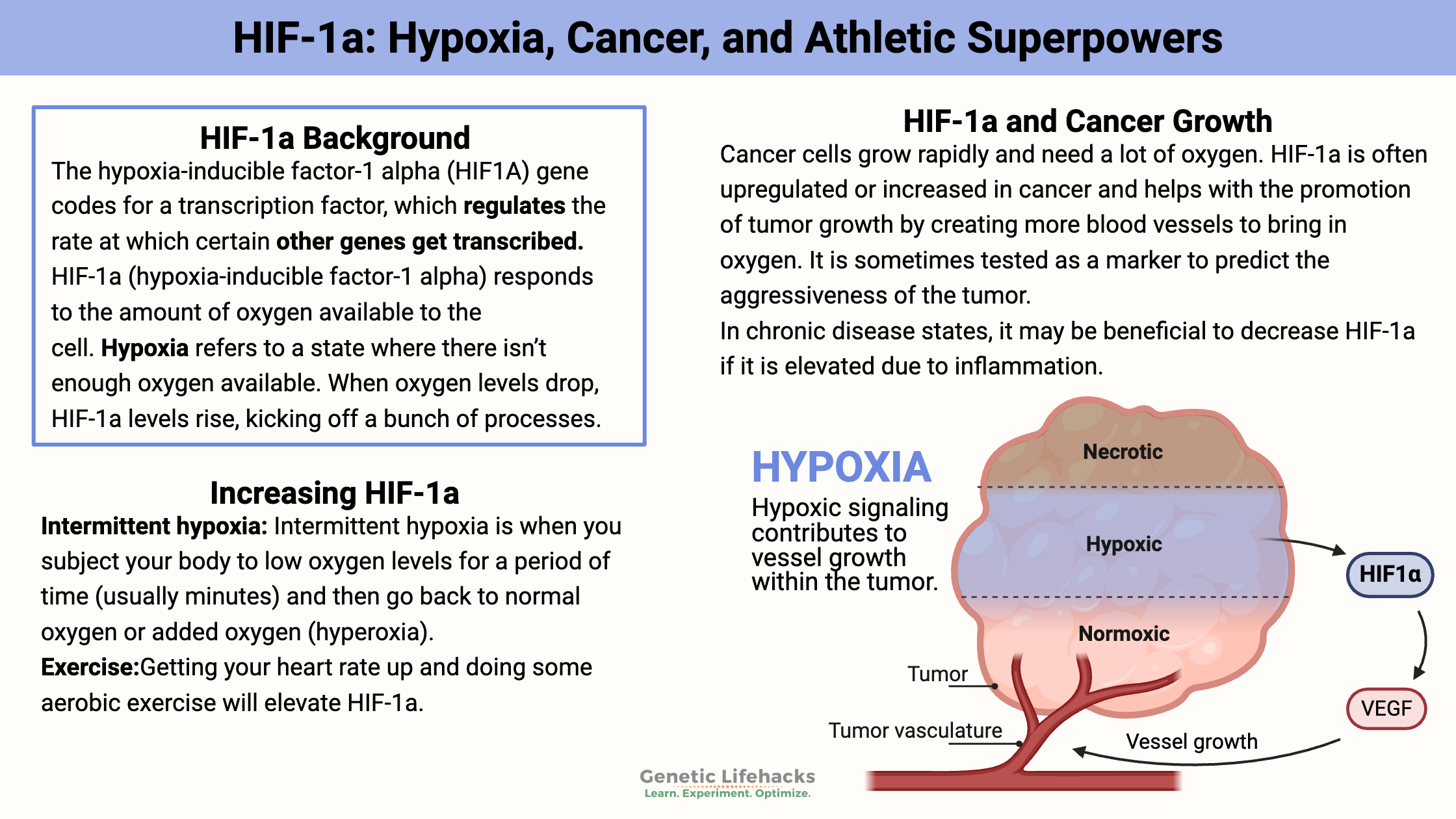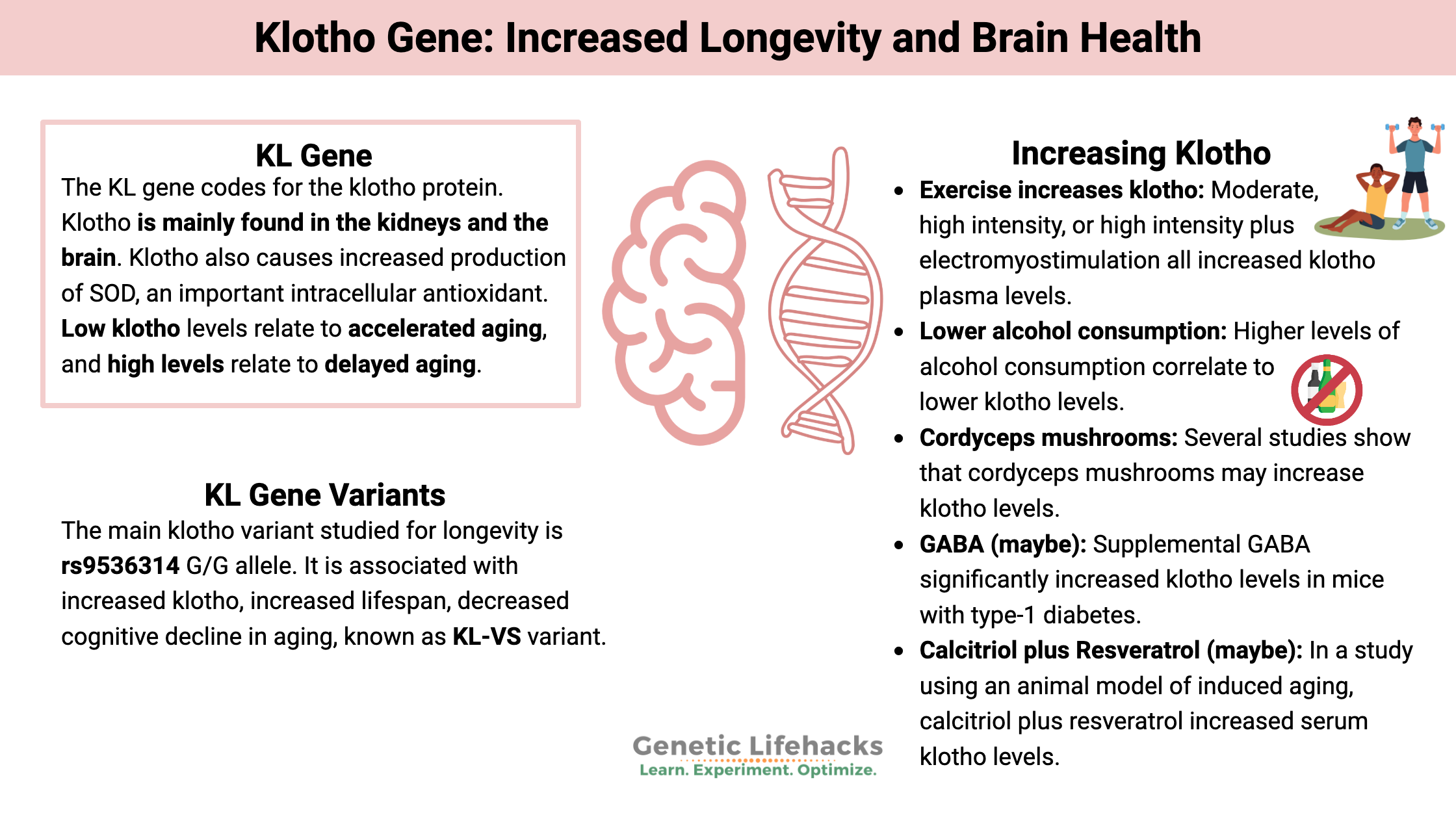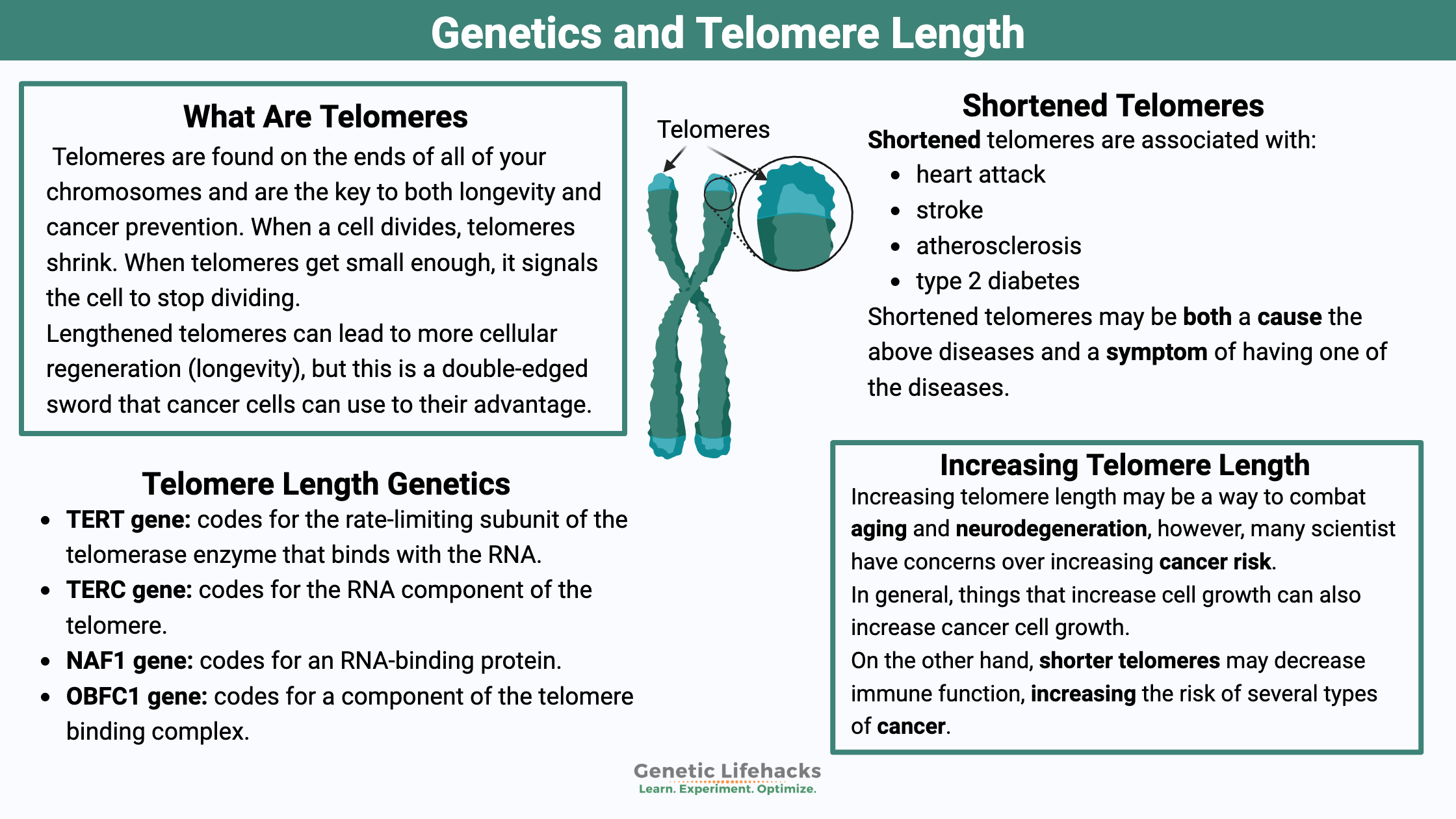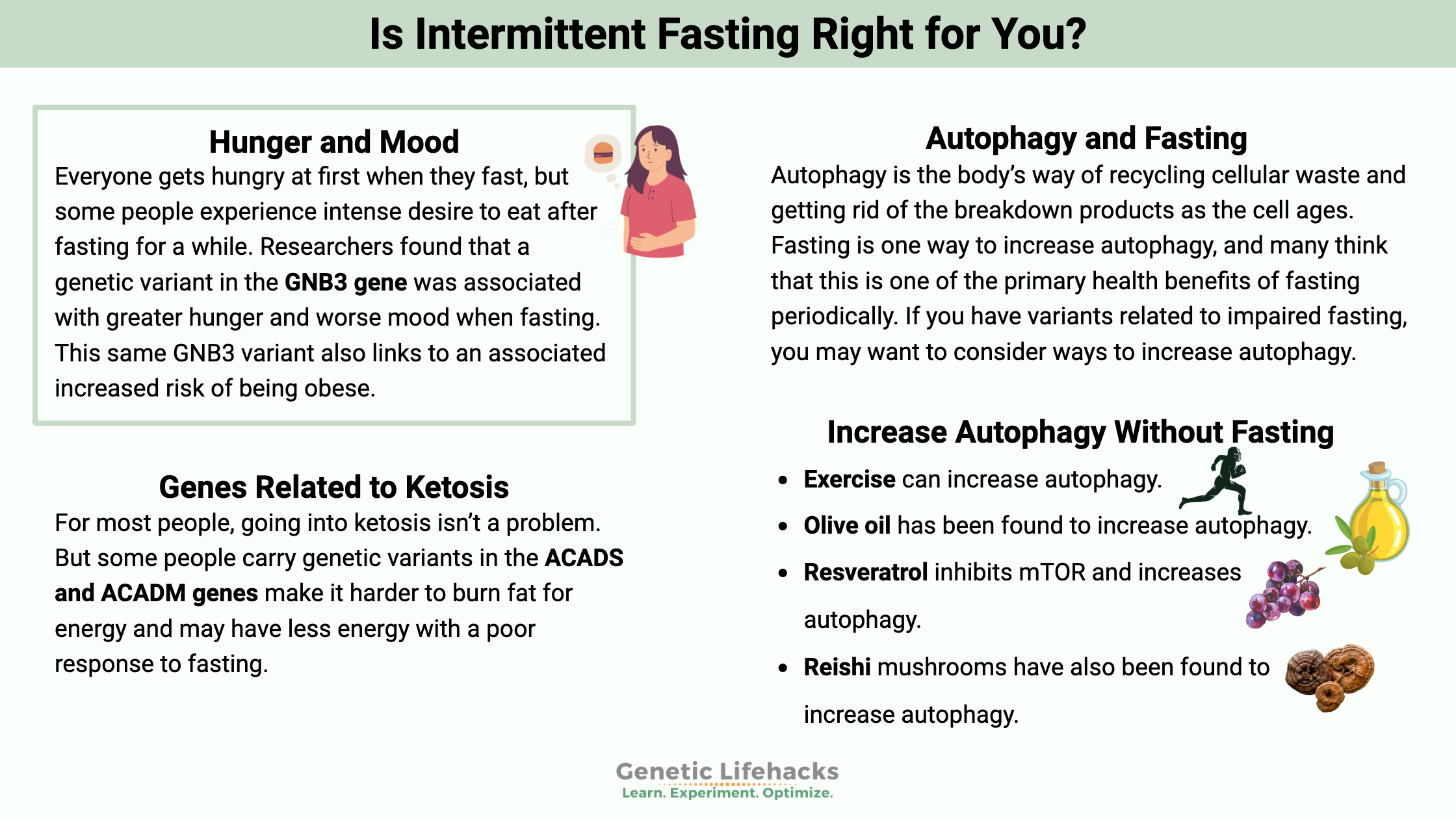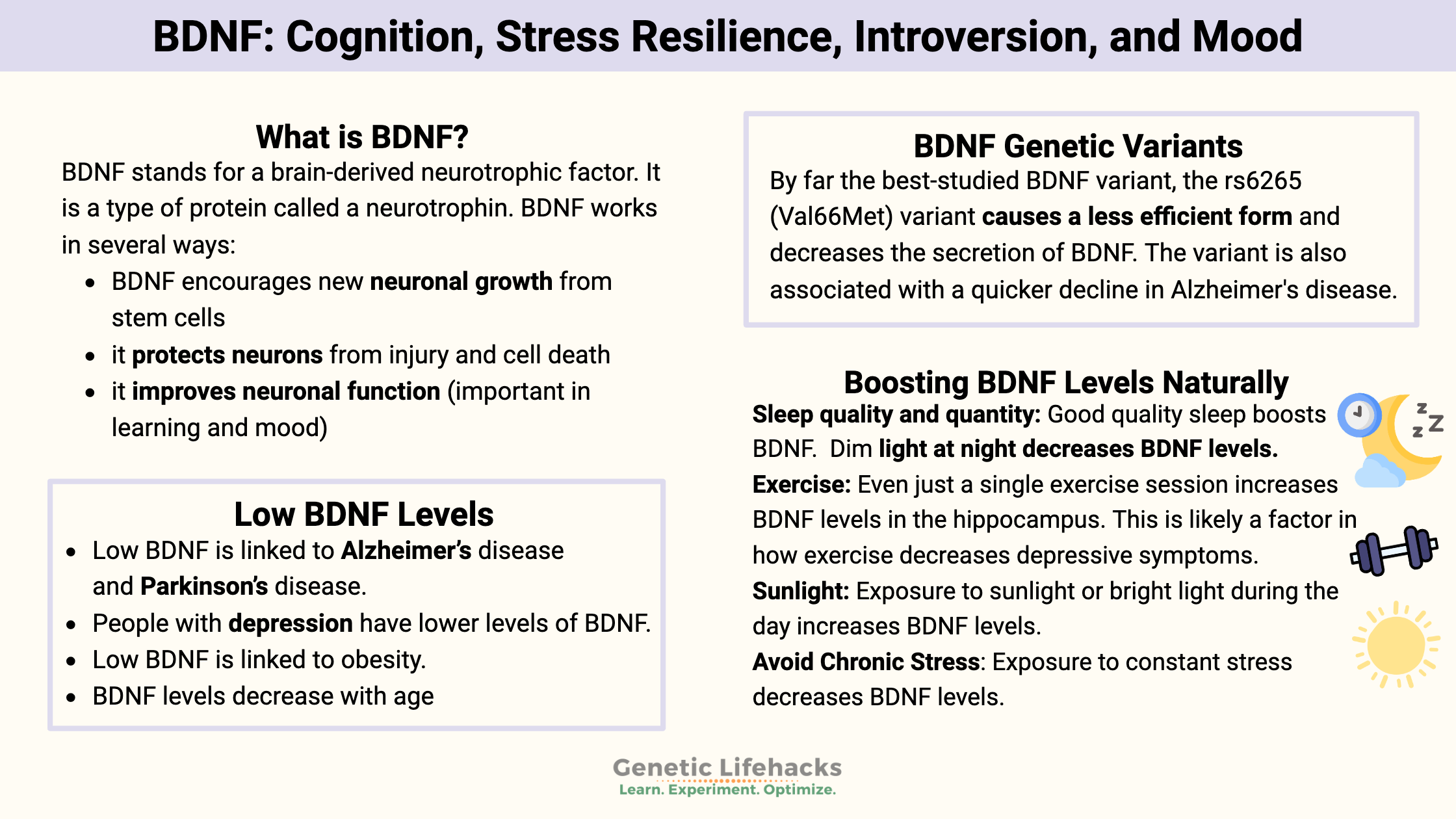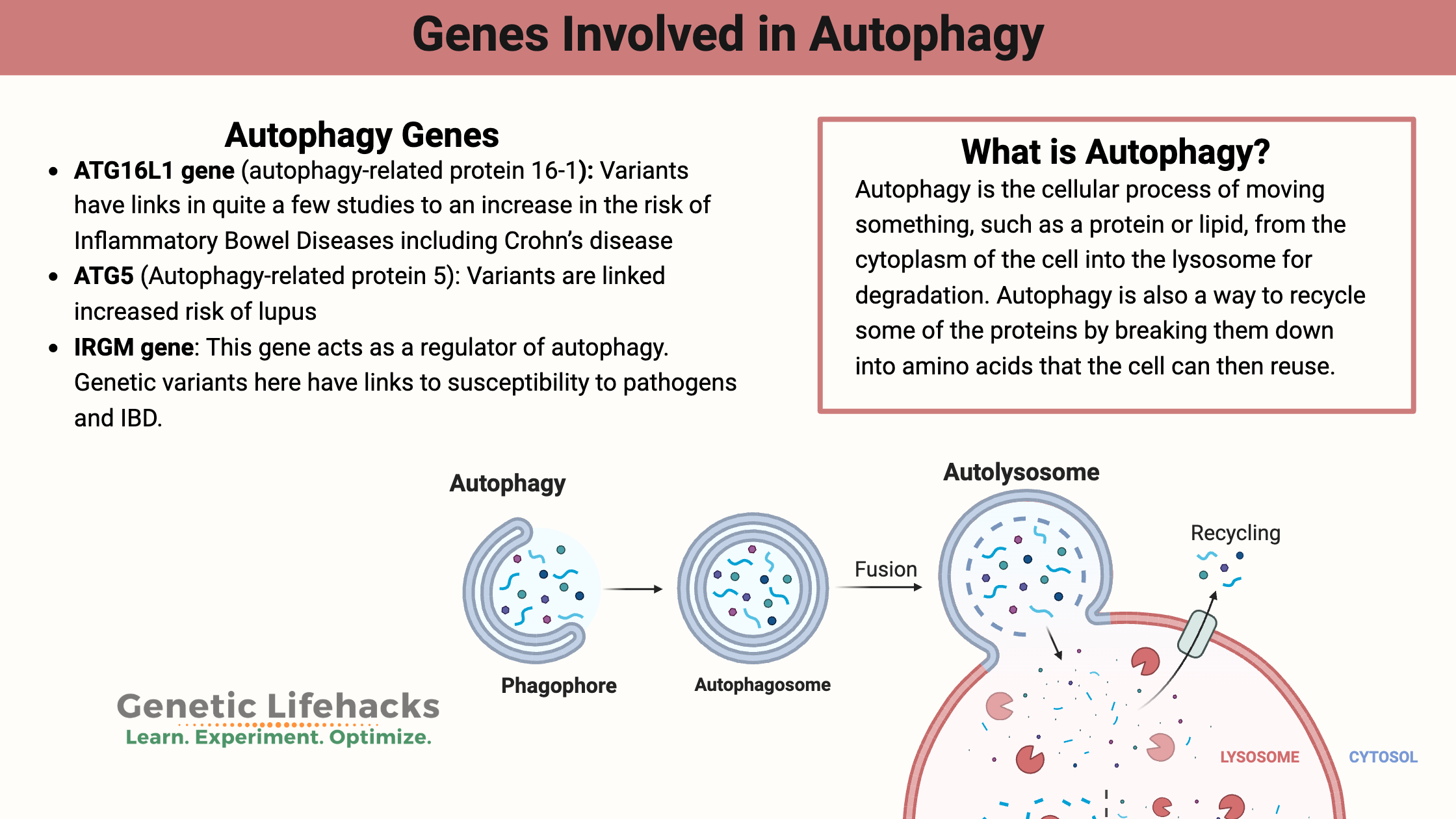Advanced Glycation End Products (AGEs): Genetics, Lifestyle, and Health Span
One cause of many of the diseases of aging is the buildup of advanced glycation end products (AGEs). Your genes interact with your diet – and cooking methods – in the build-up of AGEs. Learn whether this is something that is important for you to focus on. (Member’s article)

